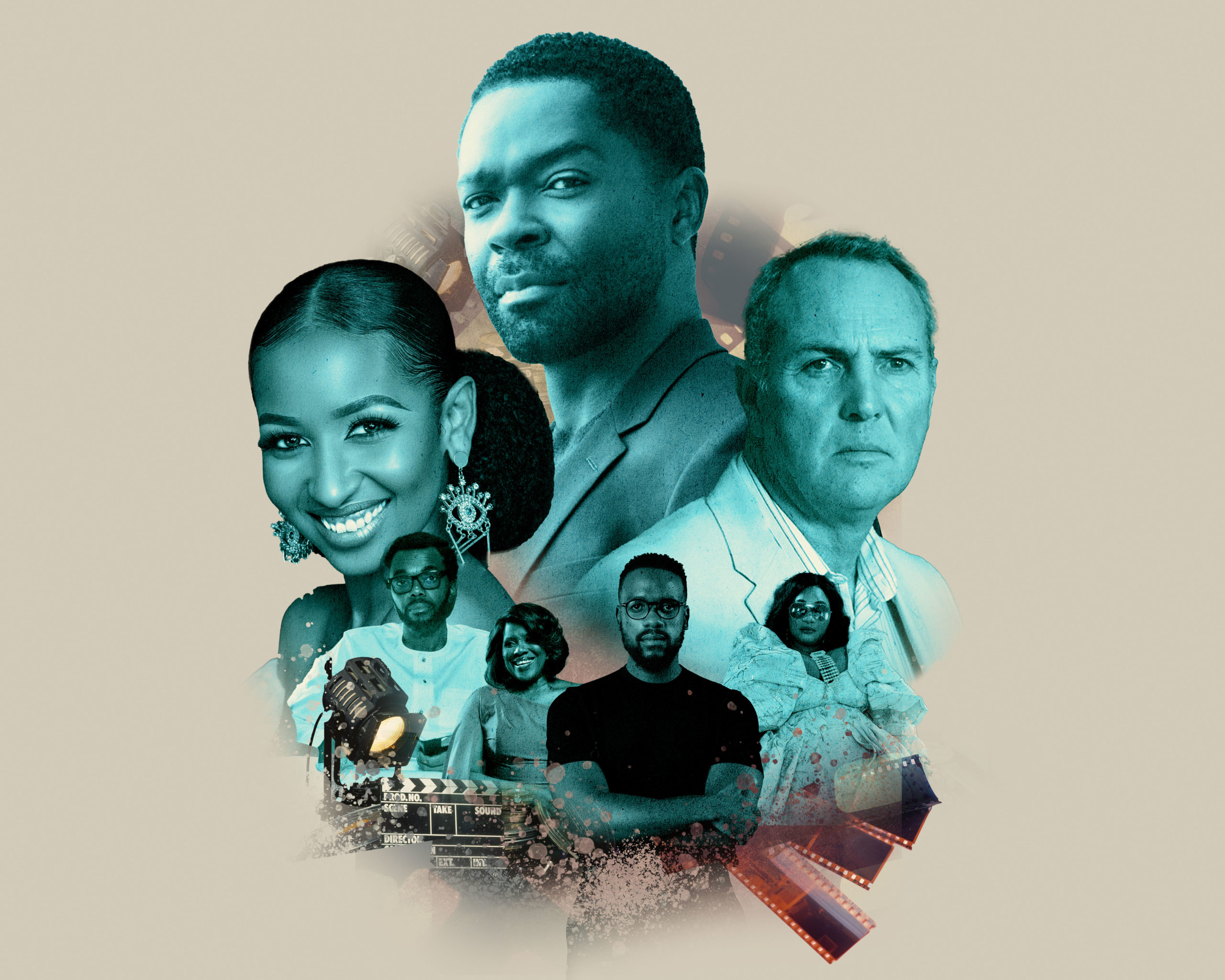Widely reported as contributing over $5 billion to the GDP in Africa, the continent’s film and audiovisual industries employ around five million people. Brimming with talent and original, quality content, Africa’s cinematic oeuvre is still being scripted. FORBES AFRICA raises the curtain on the protagonists, producers and performers turning the lens on the continent. On these pages, we hear some of the biggest icons tell the story like only they can.
Big Ticket Nollywood: Leading The Charge In African Cinema
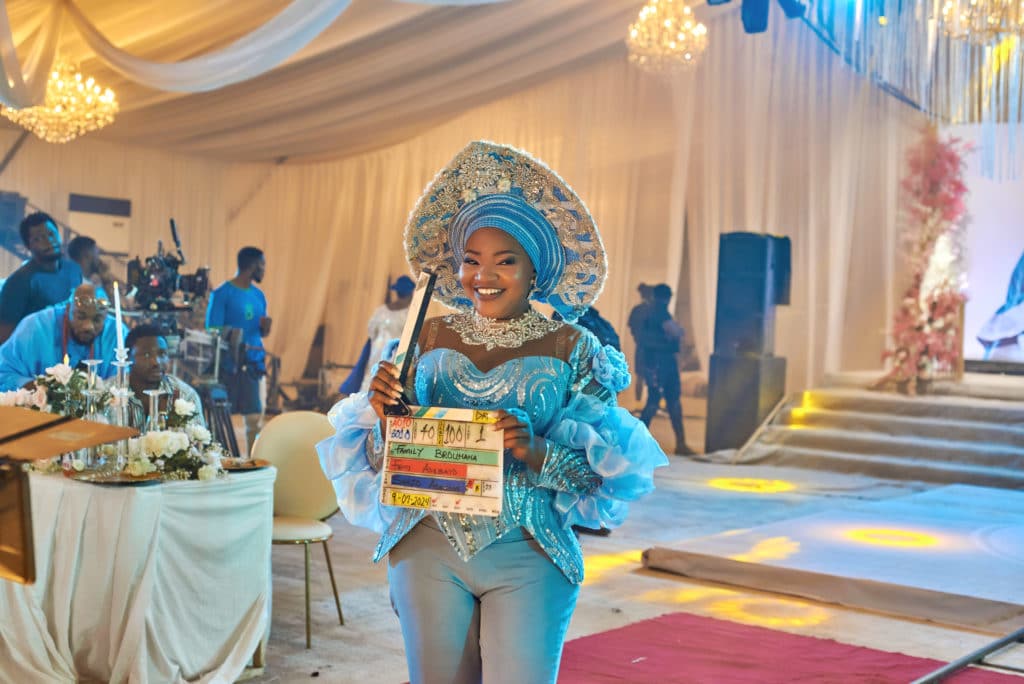
Present-day Nollywood is a thriving industry and a key component of Nigeria’s economy. Churning out over 2,500 films a year, the country’s film sector is not just a cultural phenomenon but also a ticket to the world.
Zimbabwean-American Actor-Playwright Danai Gurira: ‘Our First Concern Is The Pursuit Of Excellence And Our Narratives’
When Danai Gurira returned to the United States (U.S.) at the age of 19 from Zimbabwe, she was acutely aware that something was lacking in the way African stories were being told.
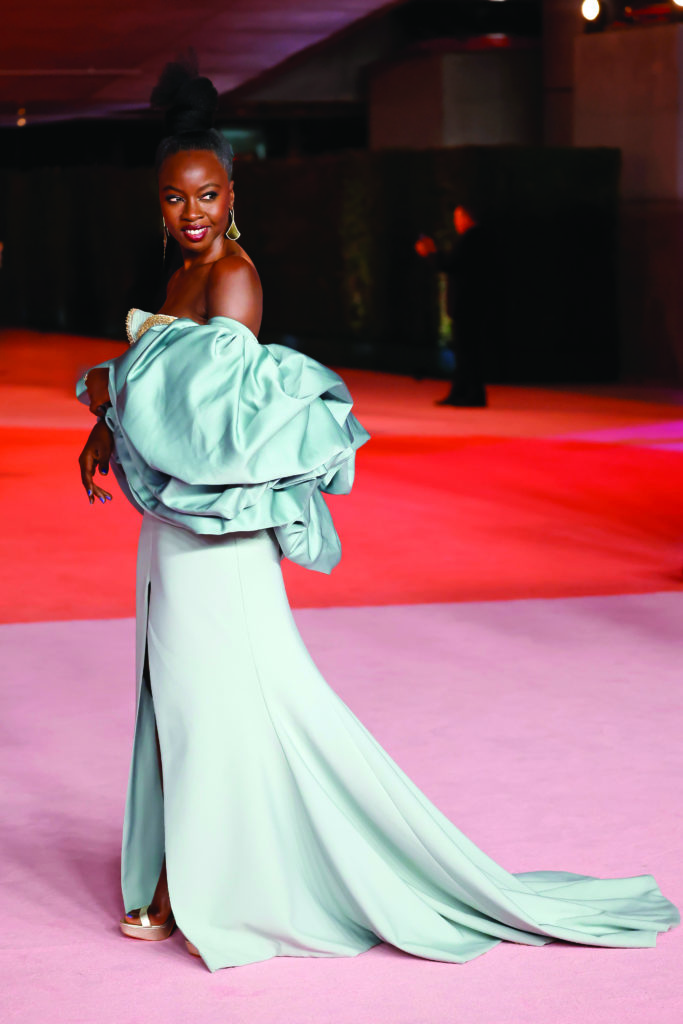
“This built up an outrage in me, so to speak, because I couldn’t see the African narrative told, in the United States, in a way that I felt portrayed us, in a way that was truthful, complex, full and humane… I saw that being allowed for the Western perspective, but not for our perspective,” she says.
Loading...
Fast forward to 2024… It’s well after lunch in bustling New York City in the U.S. as Gurira logs on to Zoom for the interview, to reflect on her “strange geographical timeline”.
Born in the U.S., Gurira and her family moved back to Zimbabwe when she was fi ve years old. She then returned to attend school at Macalester College in Saint Paul, Minnesota’s capital city.
“When there was a perspective given for the African story, it was very much stereotyped; very one- to two-dimensional, and [it] fi lled me with more outrage,” Gurira tells FORBES AFRICA.
Her iconic role as General Okoye of the Dora Milaje in Marvel’s Academy Award-winning Black Panther, Black Panther: Wakanda Forever as well as her roles in Avengers: Infi nity War and Avengers: Endgame had a notable impact on the topic of representation of Africa in cinema.
Gurira recalls moments during the fi lming of the massive blockbuster, Black Panther, where everyone involved wanted to ensure they brought in “as much ‘African’ ” as possible to the entire production.
From language to consumption, everything was about “authentic representation”.
“The pressure was there inside of ourselves because, if you get a platform that big, you have to bring your authenticity to it. The irony is, some people would say – who I disagree with – ‘if you get a platform that big, make sure that it is palatable to everybody’. And I say, ‘if you get a platform that big, get as specifi c in your authenticity as possible because then people will have to celebrate the fact that this is a story we’ve never seen, and why aren’t we seeing more of them?’ ”
Crossing the cultural bridge continued into the second part of the Black Panther franchise, even as the cast and crew mourned the loss of cast member and “leader”, Chadwick Boseman, who passed away in 2020 after a four-year battle with colon cancer.
“We had the most horrible tragedy in losing Chadwick,” Gurira says. “There was pressure in that we wanted to make sure we were honoring him, and we were honoring the legacy that he had left in terms of how he so beautifully and brilliantly led us through the first one.
“But it was also about a lot of processing and grieving that we had to walk through together.”
Before her work with Marvel, earlier on in her career, Gurira had learned the power of saying ‘no’, something she encourages emerging African artists to do as well.
After finishing her graduate training, Gurira was approached to do playwright workshops in New York.
In a 2012 interview with Marin Theatre, Gurira said that playwriting became “a necessity, being the mother of invention type thing” as she wanted to see and perform stories that reflect her people.
The workshops in The Big Apple were an opportunity for her, as an actor, to help other playwrights. But again, she noted that the portrayal of Africans was being done in an “infantile way”.
“I remember I was just really furious, and I had a school-mate who was at a play workshop with me, and he said, ‘you have to start saying no’.”
However, for Gurira, this meant fighting for the portrayal of Africans and African-Americans to be accurate and genuine, no matter the medium. During her time as a play-wright, Eclipsed was reportedly the first Broadway play to have an all-female cast, writer and director. To further the perspectives of African women in mainstream theater, her stage plays – which also include In the Continuum and The Convert – give a voice to the untold narratives.
As a writer, Gurira’s focus and mandate is clear, even when she is adapting books – it needs to be about creating a vision and authentically telling a story that advocates for Africa.
Some individuals have openly identified the problematic theme surrounding stories about the continent in that they either perpetuate stereotypical and harmful narratives about Africa or come across as inaccurate.
In a 2023 academic article by Stellenbosch University’s Rebecca Pointer, she states that while some studies have suggested that the stereotypical Western mainstream media narratives about Africa may be shifting, there are still some platforms where these stereotypes continue to repeated.
“Behind these stereotypes is the assumption that Africans are poor, lack agency, and they frequently experience famine, such that only interventions from Western development agencies can help turn things around,” Pointer wrote in her study titled Beyond western Afro-pessimism: The African narrative in African and non-western countries. “While the [current] data are discouraging, there are pockets of hope on digital media (including social media), where women and youth are taking back the proverbial pen using storytelling and humour to show that Africa is neither monolithic, nor all doom and gloom,” Pointer adds.
“I created my first play (In The Continuum) because I was tired of the statistics around African women and HIV,” Gurira explains.
“It, sort of, was taking us away from being our fullest and just being individuals. We were statistics. And I was like, ‘let’s create a character that is telling a story where the audience can’t ignore her reality, her real human’.”
Gurira carried this passion into her work on film.
Notably, and recently, she has received a nomination by the Black Reel Awards for Outstanding Writing in a Drama Series, for the fourth episode of the limited series The Walking Dead: The Ones Who Live, which is a spin-off to the popular horror-drama series, The Walking Dead.
The series reunites her character Michonne with co-star Andrew Lincoln, who plays Rick Grime, to continue the journey and their love story in six episodes. Although Gurira’s final season was in 2020, she, Lincoln, and writer Scott M. Gimple had always hoped to return and continue Michonne’s story.
“So this was us finally fulfilling that promise to the fan-base,” Gurira says.
“Did I plan to be in this massive television franchise back in 2012 when I got that job? No, I had no idea that was coming to me. But it then became a thing where I’m part of something global and extremely popular. “[And then coming back] the power of that, as an African woman, is that I was now in a very, very powerful position in this very well-known franchise as a co-creator, executive producer, writer, and the star of the show. And that then allowed me a certain degree of power and connection to a process that I didn’t have 12 years ago when I got the job.”
While the world celebrates the strides that Africa has taken, especially from the lucrative creative economy, Gurira believes that Africans need to take ownership of their stories.
“I think I’m more concerned with us seeing us than what the West decides about us. If we are unapologetic in who we are and how we tell our stories, they’ll have to pay attention. But I think that, at the end of the day, we have to not make them our first concern. Our first concern is our pursuit of excellence and our pursuit of our narratives.” Off screen, as an ambassador for Irish singer-songwriter and activist Paul David Hewson’s Bono ONE campaign, as the co-founder of Almasi Arts Alliance, which supports African drama artists, and as the founder of Love Our Girls, Gurira is dedicated to furthering gender equality and policy change. “Don’t dilute yourself, even if people have to spend two hours reading subtitles – don’t dilute yourself. Tell it from a truthful, authentic place. And it might take a long time to find the right partners who see your vision, but they will come and you will be proud of what you’ve done,” concludes the artist who has done Africa proud.
The Content Boom: Lens Is More For African Cinema
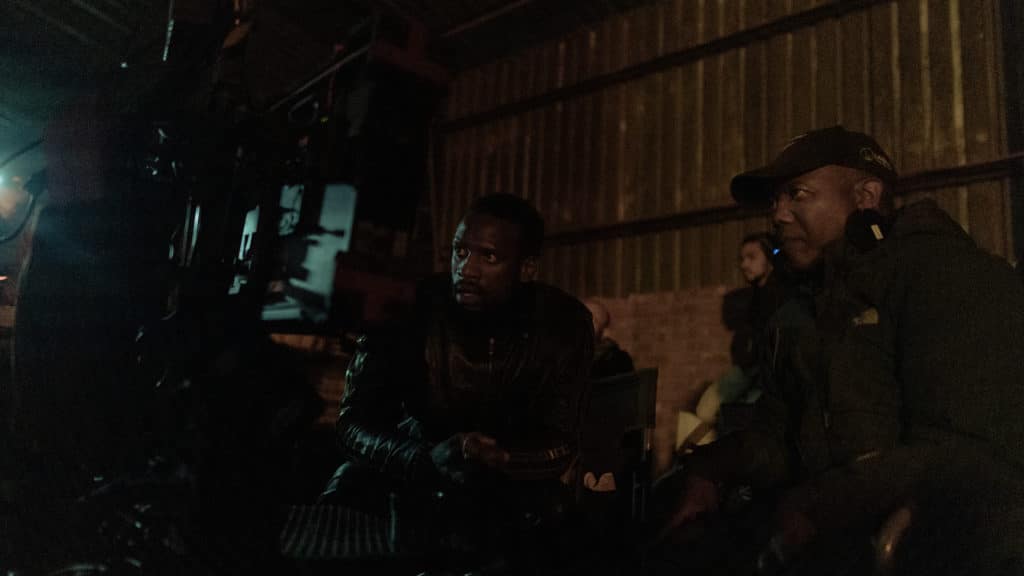
Africa’s creative economy has never looked better. And while African music has been at the forefront, there has been an uptake, both locally and internationally, from a film and television perspective. It’s not all glitz and glam behind the scenes, but it would seem the growing $5 billion-plus industry in Africa is one global audiences can’t seem to get enough of.
Actor David Oyelowo: ‘Africa Is The Cradle Of Creation’
David Oyelowo has just returned to London to prepare for rehearsals.
The eldest of three boys, Oyelowo moved to the United Kingdom with his parents – who were both academics – as immigrants. Reflecting on his illustrious career, which spans over two decades, he pauses over a Zoom call with FORBES AFRICA to consider what inspired him to become a storyteller. During his school days, he had been interested in theater and performing but had never thought of it as a means to earn a living. It was one teacher, in particular, who noticed the young talent and encouraged him to pursue acting.
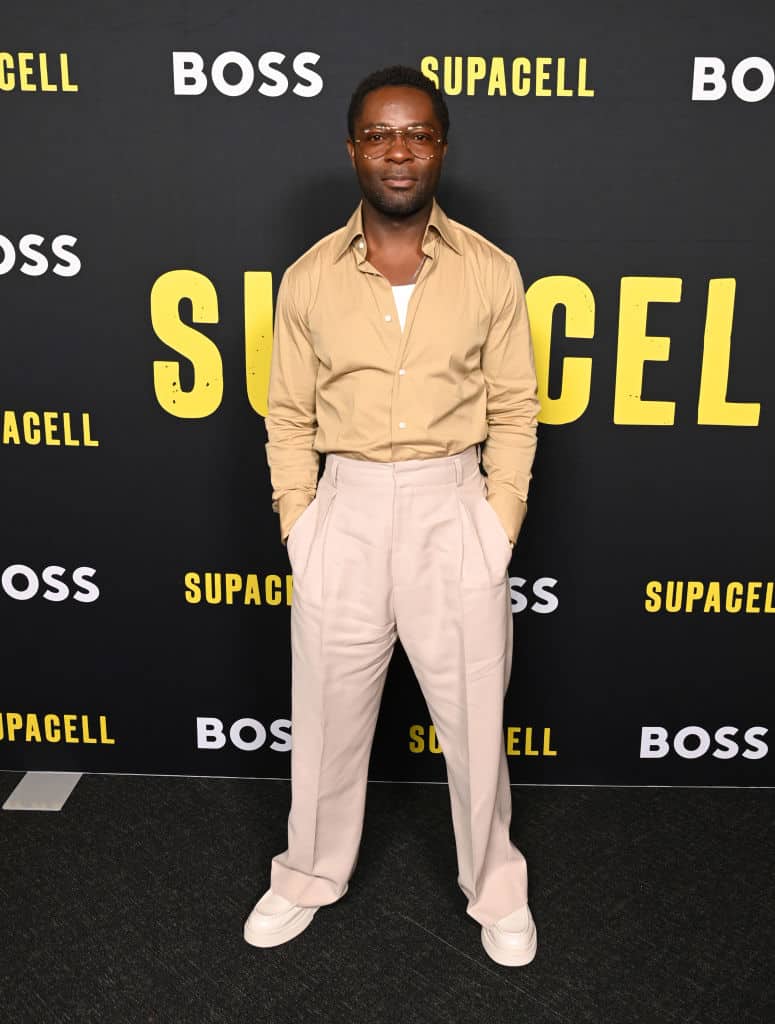
“I think my mother just thought this would be a weird thing that I would grow out of,” chuckles Oyelowo recalling the memory.
“I grew up, especially when I was in Lagos, always surrounded by uncles and men who I did not see represented on our screens… I did know that I was entering an industry where I would either be part of he problem or the solution.”
When he graduated from the London Academy of Music & Dramatic Art, he knew the kind of roles he wanted to portray.
“I graduated saying ‘no’ to jobs that did not feel like a good fit for me, which probably frustrated a lot of people,” Oyelowo explains. “But you have to know that all of those ‘no’s’ are creating a bullseye of a ‘yes’ for something ground-breaking.”
From portraying a visionary civil rights lea er in Selma (2014) to playing Cecil Gaines’s son in The Butler (2013) and a Ugandan chess coach in Queen of Katwe (2016), Oyelowo is known, globally, for bringing ground-breaking reality to his roles. It is also something he takes into consideration when choosing projects.
“I am doing this as a love I have for telling authentic stories,” he says.
Playing prominent roles that give impetus not only to the African and African-American story, Oyelowo points out that a large part of what he does has to do with ensuring that emerging artists take control of their narrative.
Further to this, he is a Co-founder of Mansa, a streaming service that offers a curated selection of films and television series that celebrate Black culture from around the globe. Oyelowo also launched the platform this year as an ad-supported streaming TV station on The Roku Channel as a way to ensure that people of color start benefi ting from the content they create.
According to a 2023 Statista report, there were 415 million smartphone subscriptions in sub-Saharan Africa in 2022. That number is expected to reach 689 million by 2028. For Oyelowo, this means that more and more people can have access to content created on the continent. But Africans need to take control of their narrative and start to tell the African story.
“I always get confused when people say Black and Brown people are the minority,” he says. “We cannot afford to be culturally colonized. We are the culture because we have the global majority…. It is crucial [that we tell our own stories], otherwise it will be watered down. Africa is the cradle of creation.”
“A large part of why I didn’t think this would or should be a passion was because my parents had not seen me or anyone like them refl ected on the screen.” The closest Oyelowo’s mother got to seeing this was with the late Sidney Poitier, a Bahamian-American actor, producer and film director, famous for the 1967 British drama film, To Sir, With Love.
Years later, a critically-acclaimed and award-winning Oyelowo states that he was aware of just how underrepresented he himself was, when his career kick-started. distinct memory comes to mind of a time when he moved back to Lagos at the age of six.
SHAPING NIGERIAN CINEMA
Wale Ojo • Actor
British-Nigerian
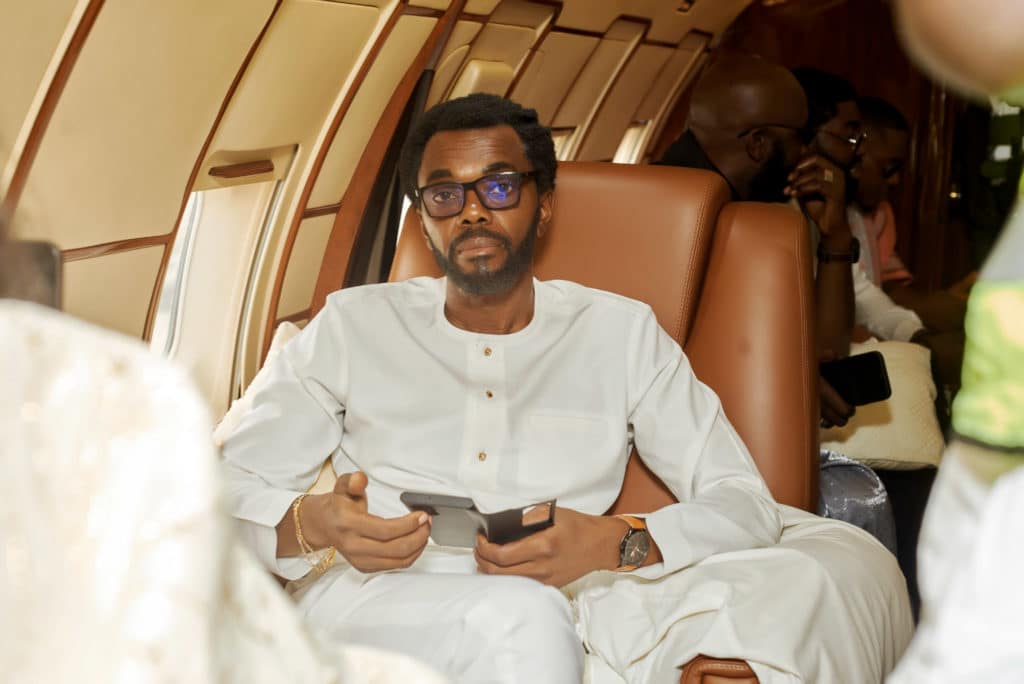
WAle Ojo was born in London, but his acting roots go back to Nigeria’s first television station, Western Nigeria Television (WNTV) Ibadan, where he was a child star. This early immersion into the world of drama and television soaps set the stage for a career that would span continents and decades.
For Ojo, a film set is a place of transformation. “A typical day involves a lot of preparation,” he says to FORBES AFRICA. “From getting my hair dyed black to rehearsing lines and shooting scenes, it’s a meticulous process. We focus on getting each scene right, which sometimes means only two or three scenes in a day.”
The global acceptance of Nollywood is something Ojo is particularly enthusiastic about. “Movies like Breath of Life have achieved significant international success, and we’re see- ing more deals with platforms like Amazon and Netflix,” he notes.
Ojo himself signed a deal with Amazon fol- lowing the success of Breath of Life, a film that not only won acclaim at the recent African Magic Viewers’ Choice Awards, but also garnered atten- tion from audiences worldwide.
Despite the positive trends, Ojo is candid about the challenges facing the industry.
“The lack of reliable power is a major issue,” he admits. “It affects everything from shooting schedules to the quality of production.”
‘PEOPLE WANT TO BE HEARD AND HEARD COMPLETELY’
Valen’tino Mathibela •Director, Writer
South African
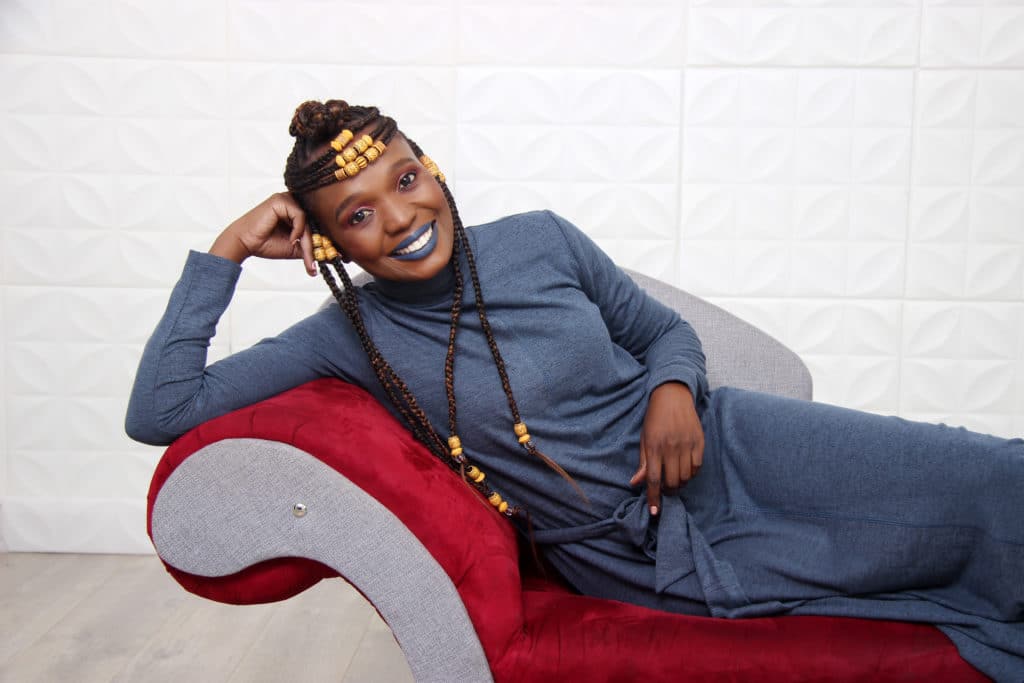
In 2021, South African cop-turned-serial-killer Nomia Rosemary was sentenced to six concurrent life terms for the murders of her lover and five of her family members. What was her motive? As it turned out, it was to live off their life and funeral insurance policies. She collected as much as R1.4 million ($93,000) at the time of her arrest.
This is just one example of a real-life story that viewers would rather engage with as opposed to scripted content.
“It spoke to what it means to mourn unexpectedly and I just loved how it also delved into the human psyche in Rosemary,” director Valen’tino Mathibela of Rosemary’s Hitlist tells FORBES AFRICA.
“That’s where I also saw the difference between reality television, which I’ve done for years, but drama as well, which I have also done for years. I’ve found my- self loving and enjoying a lot of documentary storytelling as it remains authentic where I feel that drama, for some reason, has become repetitive.”
A big part of the success of the series was the language that the docu-series used. For Mathibela, language is key in telling stories like this one because people want to be heard and heard completely.
“I’m proud of that project, because they got to speak from firsthand experi- ence; [there was] no alteration of their emotions or expressions. They got to speak and be heard and be able to express themselves without a second language. You don’t want a language barrier to rob you of that experience.”
‘DON’T OVERTHINK THE JOB’
Bonko Khoza • Actor
South African
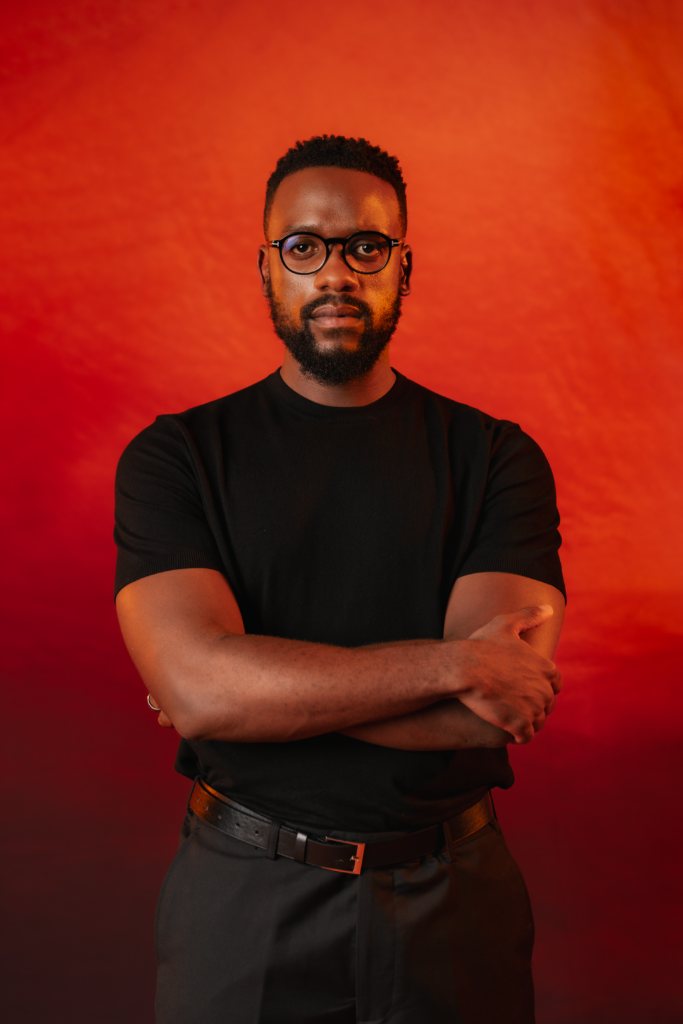
A big part of South Africa’s television culture is driven by the popularity of soap operas and telenovelas.
Known for his South African Film & Television Awards-winning role as Mqhele Zulu on the Showmax Original series, The Wife, Bonko Khoza tells FORBES AF- RICA that even as a child, he knew that he was creatively inclined.
“I was just naturally an artistic person… I had a creative opinion about the world, a creative lens through which I saw it.”
Khoza also played the lead as Zuko Khumalo in the thriller, Heart of the Hunter, a Netflix film that debuted in March 2024, and made history by reaching the top 10 spot for English-language films on the platform’s weekly rankings. It was the first African film to achieve the milestone.
The movie garnered a reported total of 11 million views and made it to Netflix’s top 10 list in 75 countries, including the U.S., Nigeria, France, Germany, South Korea, United Arab Emirates, Mexico, Hong Kong and Kenya.
Khoza has been celebrated for his roles as he is able to play the seri- ous characters, in particular, with much intensity and focus. When asked about his approach, the actor says: “I think I see it very differently to my colleagues, or to everyone else’s. The point [of my work] is simple. The job is to pretend to live in someone else’s truth. If someone says the job is to carry this heavyweight across this line, I don’t overthink it.
“Yes the weight is hard and heavy but all I have to do is carry it. So whenever I’m taking on these characters, I assess what’s true about these people.”
A JOURNEY ON AND OFF SCREEN
Joke Silva • Actor, Director
Nigerian
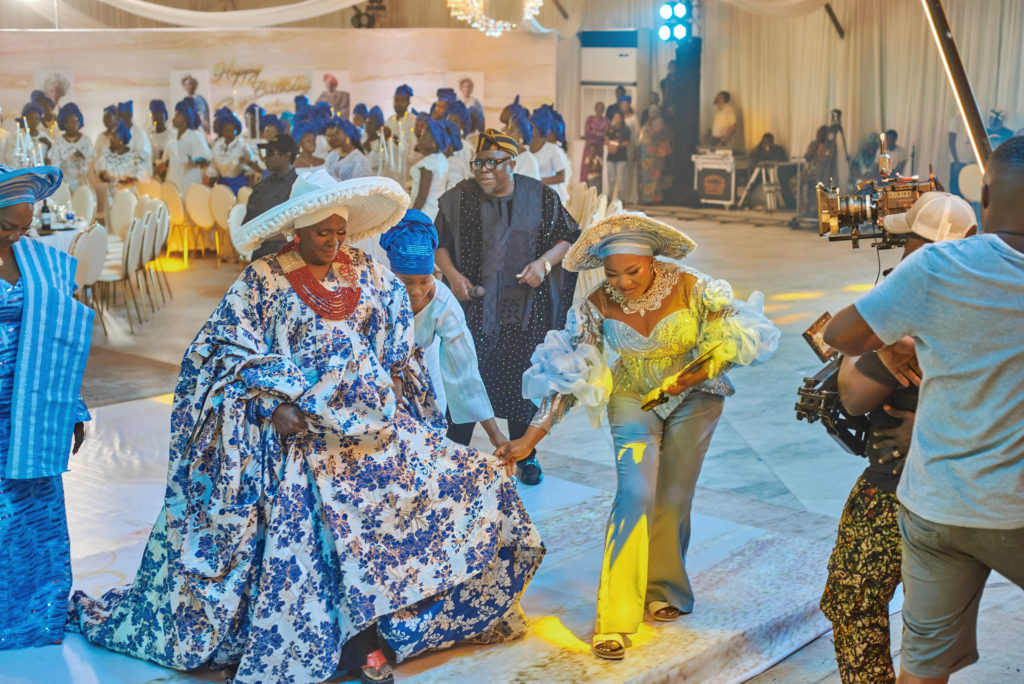
Joke Silva’s career began in 1981, when she graced the stage with her debut performance. Since then, she has become a fixture in Nigerian entertainment, appearing in numerous films, television series and stage productions. With a degree in English from the University of Lagos and training from the Webber Douglas Academy of Dramatic Art in London, Silva’s foundation in the arts is as noteworthy as her performances.
As she waits for her gele (headgear) to fully get into charac- ter at a movie set in Lagos, she shares with FORBES AFRICA: “There was a time when not many productions were hap- pening, and the industry was misunderstood. But with the advent of technology, it’s now easier and cheaper to tell stories, moving away from the expensive celluloid days.” Beyond her performances on screen, Silva also co-founded Lufodo Group with her husband, actor Olu Jacobs. It encompasses drama productions and an academy for performing arts. According to reports, their production arm curated Nigerian artistic expressions at several international events, such as the 2012 Olympics and the Nigerian Creative Arts Exchange in Paris in 2018.
Two years ago, the Lagos State Government engaged Lufodo as the concessionaire to manage Glover Memorial Hall, a heritage building for theater and performing arts built in 1887.
“It’s been a lot of heavy-lifting; it’s been challenging, and it’s been exciting. We shoot a lot of films. I wish I had known the sort of challenges my EP [executive producer] would face; I would have provided her with some tools. The studio is built with such good soundproofing that people rent it a lot to shoot films. More people are beginning to accept our standards of working,” Silva concludes.
South African Actor Arnold Vosloo: ‘It Doesn’t Get Any Better Than Working With Al Pacino On Broadway’
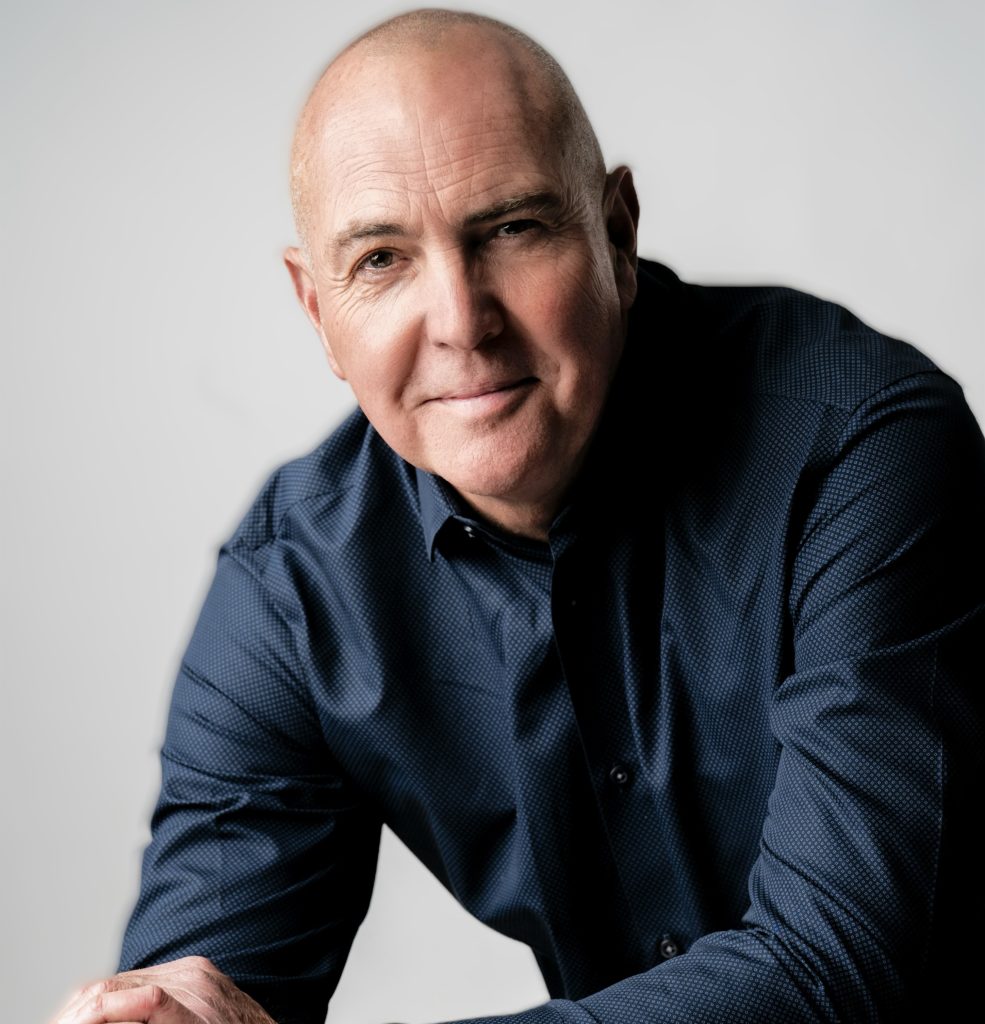
Arnold Vosloo made his mark in films and series not only in his native South Africa but also in Hollywood, and often, as a villain. Unsurprisingly, when asked which character was his favorite to play on screen, he says: “The role I enjoyed playing the most in my career was two and a half years ago… I came back to South Af- rica for a Netflix production called Ludik. I just loved the part of Daan Ludik because it was so uncompromising,” he tells FORBES AFRICA.
“Here was this family guy trying to hold things together, running a business empire but smuggling diamonds on the side; he has family issues and a religious father. It was just the to- tal package. I thought it was very well-written, the part was especially great, and I just had the best time. It was on Netflix, which meant it was seen all over the world.”
Vosloo, who says there really wasn’t a Plan B and that acting was always what he was go- ing to do, has well over 80 filmography credits to his name between 1982 and 2024.
Throughout his career, there have been highlights he can recount.
“They were moments I was acutely aware of… number one, when I worked on Broadway in New York City in a production called Salome, Oscar Wilde’s Salome. I was cast as John the Baptist, and the star of the show was Al Pacino. It just doesn’t get any better than that – to be on Broadway in a big production, and Al Pacino is the star… I’ll never forget it. It was an amazing few months, not just because of the work and watching him on stage, but especially for the rehearsal period; he really taught me a lot because he was so ‘all-in’ on the rehearsals,” Vosloo recalls.
“In terms of film, it’s got to be The Mummy movies. They’re be- loved… in fact, it’s the 25th anniversary; I know it’s screening again all over the world. That was an amazing experience. It was just so cool – at the time I was in Los Angeles, I was driving down Sunset Boulevard and see these big billboards and it would say The Mummy and my name was on the post. It was a cool moment.”
“The third sort of ‘aha’ moment was when I was doing 24 – a television series. I was asked to come on just for an episode or two and then the producers liked what I did. They asked me to stay on for the whole season. I knew of the show, but I just didn’t know it was as big as it was. It was all over the world and with its kind of innate fan base,” he adds.
Having worked hard on many memorable and beautiful locations and film sets, including in Costa Rica and Morocco, which is actually where a lot of the outdoor scenes for The Mummy were shot, Vosloo admits that walking is his favorite way to de-stress.
“I’m not a big gym guy – I went to the gym especially when I was younger because I had to. But that’s the cool thing about being on these locations – Paris, London or New York… I’ll just go walk in these great cities, you know. And it’s just such a luxury. Walking has been my church, as an artist and as a person.”
Since getting back in South Africa, Vosloo has done several projects, including two productions, back-to-back, in Cape Town.
Despite being 62, he says his current plans are to continue working for authentic South African stories here, as well as American films, if the opportunities present themselves.
‘THE DREAMS WE WANT TO ACHIEVE’
Jaiye Kuti • Actor
Nigerian
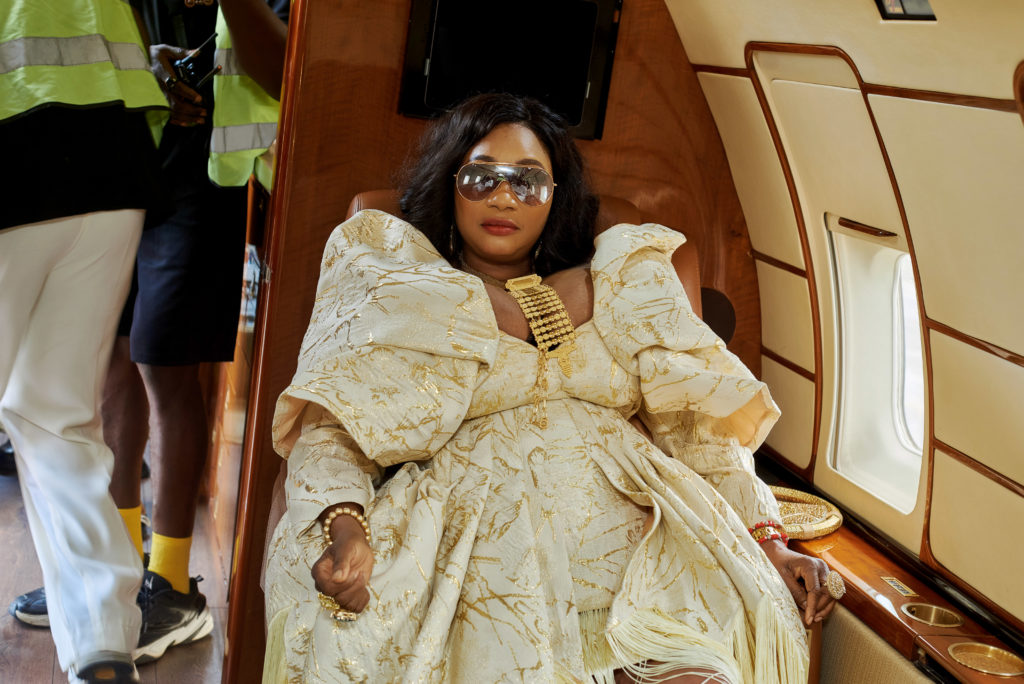
Jaiye Kuti’s journey into Nollywood began in the early 2000s when she made her debut in a popular television sitcom, Laff Patterns. However, her foray into film production, including the recent release of her film, Alagbede (Blacksmith), has not been without its challenges.
In Nigeria, producing a movie often requires substantial financial investment, she concurs.
“Once you have the money, then it’s time to tell the story. Sometimes we have the story, but without the funds to bring it to life, it’s a problem.”
Beyond her roles in front of and behind the camera, Kuti is a vocal advocate for health insurance within the entertainment in- dustry. She believes in the importance of preparing for the future, especially given the demanding nature of their work.
“The work that we do can affect us over time and it’s essential to have something to fall back on as we grow older,” she says, clarifying her stance about colleagues who have sought financial help online to address health issues.
On set, Kuti’s days are filled with a blend of routines.
“It’s very easy because some of us are born with certain things. It is a dream we want to achieve… In fact, it is from the dream that we have started to re-enact ourselves and get used to the character…”
‘DO A GREAT STORY REAL JUSTICE’
Gareth Whittaker • Director, Writer, Producer
South Africa
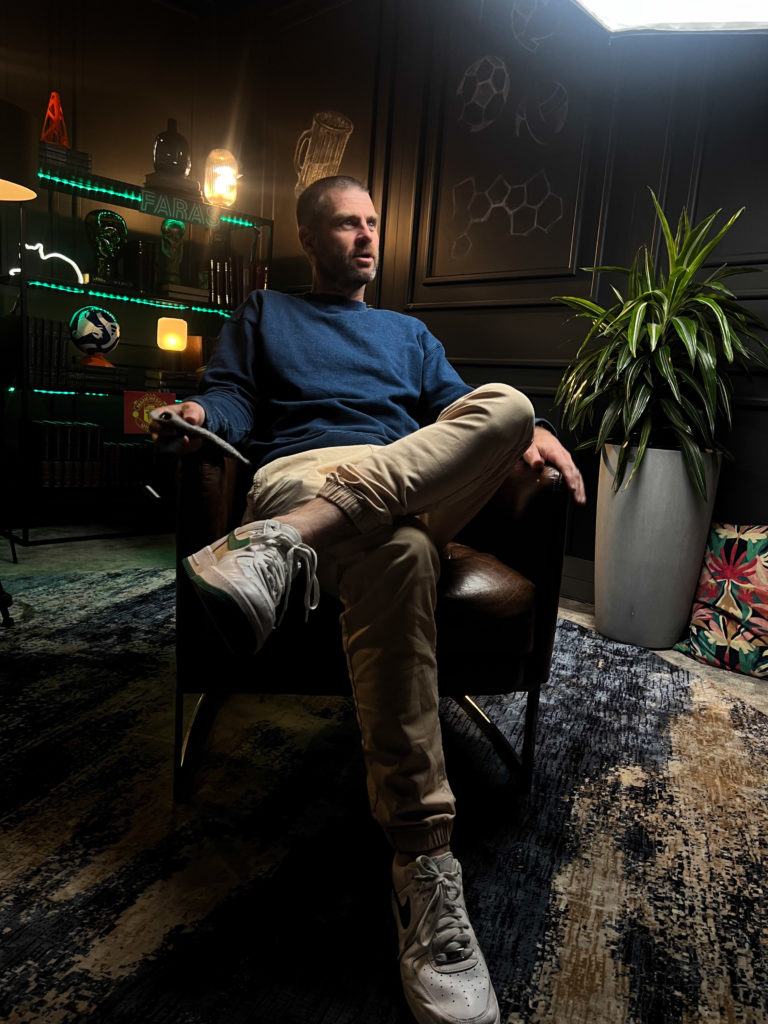
It was after 11PM in South Africa when the Springboks lifted the Webb Ellis Cup for the fourth time at the Stade de France in Paris, France, in October last year.
The memorable match, which saw the All Blacks lose 11-12, was met with tears and cheers in every corner of South Africa.
It’s a moment that Gareth Whittaker would not want you to forget.
Chasing the Sun is a sports documentary series that details the 2019 and 2023 Springbok World Cup journeys. The documen- tary reportedly had millions of views.
“It was a story of great South Africans trying to do something special,” Whittaker explains.
“What I fundamentally believe, is that story is human,” the director, producer and writer says to FORBES AFRICA.
“And to do a great story real justice, we must understand the human beings that are part of that story, and we must know where they’ve come from, we must know their context, we must know their language, we must know their hometowns. I believed that across any good story, and across any good sports story, but I believed it even more so with the Springbok team.”
He wanted to tell a story of hope and one that allowed people to feel connected, more than they already had, to winning the Rugby World Cup in 2023.
Though some crews may find it challenging to tell an un-scripted story, especially when it comes to sport, Whittaker says it is the best genre because one really can’t predict what will happen.
“That’s certainly one of the great challenges, but it’s also the most beau- tiful part of it. Sport is not scripted, and that we’re continually amazed, that we’re Continually surprised, is what makes it so magical.”
Kenyan Actor-Producer On Wearing Many Hats And Why Timing Is Everything
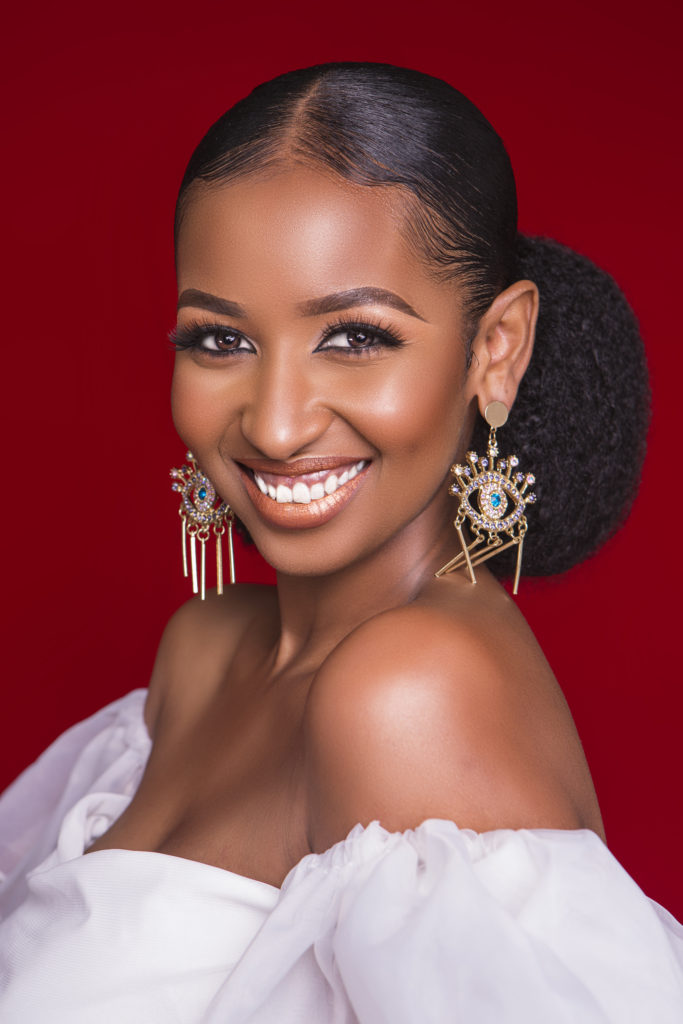
Accolades aside, Kenyan actor-and-host-turned-producer, Sarah Hassan seems to see no limit as to what she can achieve.
After discovering her love for performing at a very young age, she went on to join the cast of drama, Tahidi High, playing the role of Tanya. It earned her the award for Best Actress at the CHAT Awards in 2010 and 2011.
However, while she truly enjoys acting and hosting, which she had done for several years, there was another passion in her heart that she could only fulfill later on in her career.
“I wanted to go to, specifically, the New York Film Academy [ever] since I was out of high school… but, of course, [there were issues of ] finances and all that. I told myself one day I am going to go. I remember I had a different bank account where I just saved for film school, and I had gotten to a place where I could go, I think a couple of years before I went, but it didn’t feel like it was the right time,” she says.
“I remember, two years later, I wasn’t getting auditions at that time. I felt like if I had the necessary skillset and everything, that I could do my own story or do a short film and satisfy that part of my soul. By that time, I felt like this is the time… So I sent in the application.”
Hassan, speaking to us from her home in Kenya, recalls the experience with great enthusiasm, detailing all the skills she had learned, including the basics of editing and lighting, directing, writing and producing. As soon as she had completed her year in Los Angeles, she put the skills she had learned to good use.
“My dream has always been to be able to, first and foremost, have that skillset, and then be able to work as a producer; as an actor, not only in my country, but anywhere else in the world. Before I left, I remember I did a few projects out there. I did my first-ever short film where I wrote, co-directed, produced and acted in. It won about eight film festival awards. So [that] was quite pivotal for me,” she adds.
“I had gotten awards for acting before that, and for hosting, but this, I would say, is a highlight, not because of the awards but because of what it symbolized. I was behind-the-scenes of a project that I had produced. This was the first time ever doing something that was not acting or hosting. It was the first time doing a story from development – taking it from my mind all the way to seeing it completed.” Hassan, who has her own production company, Alfajiri Productions, would go on to work with streaming giant, Netflix.
“For 40 Sticks, I was brought on board as a lead producer. It was so beautiful because I was there from the beginning, from bringing onboard the writers, from the development stage, the pre-development stage, filming stage, the post. Then Just In Time – that was with my company; with my team, and in collaboration with Lola D, who’s a very good friend of mine and a fantastic director. To see it on Netflix worldwide, not just in Africa, was surreal,” Hassan says.
“Now, with Anyango and the Ogre – it was a commission project, because it’s by Netflix and UNESCO – it was amazing to also see that other side, to be able to work with the executive producers in South Africa, you get to learn a lot. We have been doing [this] for a while but not as long, and to see all the different steps… it was absolutely amazing.”
She concludes that collaboration is key, especially between directors and producers on the continent. Not only does it bring in diverse audiences, one also gets to share resources and learn.
OTHER BIG NAMES IN HOLLYWOOD:
STARS EITHER BORN IN AFRICA OR ARE OF AFRICAN HERITAGE.
- DJIMON HOUNSOU • ACTOR, PRODUCER, DIRECTOR
Born in: Cotonou, Benin
Best-known for: His role as Solomon Vandy in Blood Diamond alongside Leonardo DiCaprio. But you may have recently seen him in Marvel Cinematic Universe’s Guardians of the Galaxy and in Captain Marvel as Korath the Pursuer. He has also fea- tured in DC Extended Universe’s Aquaman as Fisherman King, and as Wizard Shazam in Shazam!.
2. CHARLIZE THERON • ACTOR, PRODUCER
Born in: Gauteng, South Africa
Best-known for: Has a body of work that spans over 29 years and over 50 films. From the Fast franchise, also featuring Vin Diesel, to her turn as the Evil Queen in the Snow White and Huntsman sequel, the actor is the recipient of various ac- colades, including an Academy Award and a Golden Globe Award.
3. EDI GATHEGI • ACTOR
Born in: Nairobi, Kenya
Best-known for: From Stephenie Meyer’s Twilight Series (as Laurent) to Armando Muñoz / Darwin in X-Men: First Class, Gathegi is also known for his role as Dev Ayesa in the science fiction series, For All Mankind.
4. LUPITA NYONG’O • ACTOR
Born in: Mexico City to Kenyan parents
Best-known for: Bringing many roles to life, notably as Nakia in the Black Panther series which has been well-received globally. Recently, she starred in the apocalyptic horror film, A Quiet Place: Day One.
5. IDRIS ELBA • ACTOR, PRODUCER, DJ
Born in: London Borough of Hackney, U.K., to West African (Sierra Leone and Ghana) parents.
Best-known for: Has gone from playing a villain in the Fast prequel, Hobbs & Shaw, to the loyal hero in Thor, but nothing was more critically-acclaimed – and African – for Elba than playing former South African president Nelson Mandela in the 2013 biographical film Mandela: Long Walk to Freedom; a role which the actor tells FORBES AFRICA was “significantly unbe- lievable” but also one he was “incredibly nervous” about.
6. CYNTHIA ERIVO • ACTOR, SINGER
Born in: South London, U.K., to Nigerian parents.
Best-known for: Her Broadway performances in The Color Purple, Widows and Bad Times at the El Royale, however, recently, the world celebrated with her when it was announced she would be playing Elphaba Thropp in the much-anticipated Wicked alongside singer Ariana Grande set to be released in November.
7. SASHA PIETERSE • ACTOR, SINGER
Born in: Gauteng, South Africa
Best-known for: Her role as Alison DiLaurentis in the critically- acclaimed television series, Pretty Little Liars, as well as its 2019 spin-off Pretty Little Liars: The Perfectionists.
9. ADHIR KALYAN • ACTOR
Born in: KwaZulu-Natal, South Africa
Best-known for: His role as Timmy in the sitcom Rules of Engagement. The Durban-born actor has also recently been noted for portraying Awalmir Karimi/’Al’ in United States of Al.
10. CHIWETEL EJIOFOR • ACTOR
Born in: London, U.K., to Nigerian parents
Best-known for: Having been in over 40 projects, Ejiofor has received Academy Award and Golden Globe Award nomina- tions, as well as won a BAFTA for Best Actor for his role as Solomon Northup in 12 Years a Slave.
11. SOPHIE OKONEDO • ACTOR
Born in: London, U.K.; Okonedo’s father is British-Nigerian
Best-known for: From Doctor Who to Hellboy, she was also in the critically-acclaimed Hotel Rwanda.
East Africa’s Tinseltown Boasts Its Own Creative Narrative
It’s no secret that, along with South Africa and Nigeria, Kenya is right up there as one of the biggest producers of content in Africa’s entertainment and media landscape. As stated in the PricewaterhouseCoopers (PwC) Africa Entertainment and Media Outlook 2023-2027 report, Kenya’s entertainment industry (including cinema, OTT, TV etc) revenue grew 9.8% in 2022 and is worth over $2 billion.
Loading...
